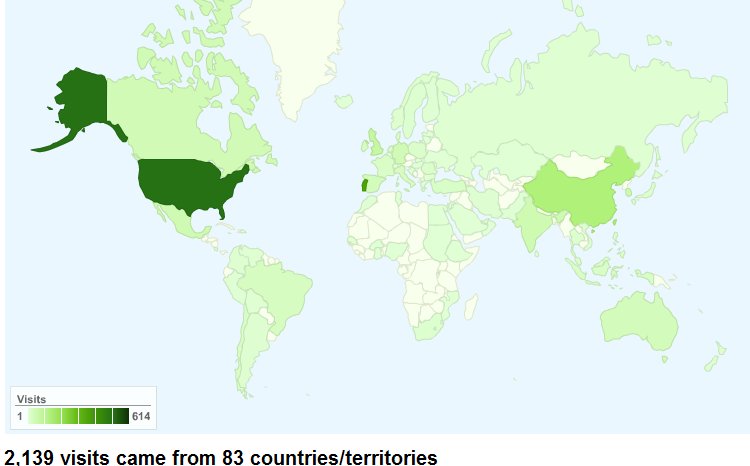|
Welcome to the ASSETS site, built in cooperation between NOAA
and FCT. ASSETS stands for Assessment of Estuarine
Trophic Status, and builds on the U.S. National Estuarine Eutrophication Assessment
(NEEA) developed by NOAA.
All users have access to information about the approach used
in ASSETS, and to the results obtained for the various estuaries.
Additionally, there
is an area for data input which is restricted to authorized users.
Right: eutro.org hits in '08. 42% are return visitors |
 |
News
Apply ASSETS to your local system. The ASSETS application is available for download
here. It is free, and available in five languages, including Chinese, reaching a language universe of over two billion people.
Listen to the podcast from NCCOS Diving Deeper: Eutrophication? Released January 2009.
The original US NEEA study has recently been updated. Visit
the update site
Two definitions of eutrophication
From an update workshop on
the US National Estuarine Eutrophication Assessment
Eutrophication
is a natural process by which productivity of a water body, as measured by organic
matter, increases as a result of increasing nutrient inputs. These inputs are a result
of natural processes but in recent decades they have been greatly supplemented by
various human related activities. Cultural eutrophication, or nutrient overenrichment,
is the enhanced accumulation of organic matter, particularly algae, that is caused
by human related increases in the amount and composition of nutrients being discharged
to the water body. A variety of impacts may result, including nuisance and toxic algal
blooms, depleted dissolved oxygen, and loss of submerged aquatic vegetation and benthic
fauna. These impacts are interrelated and usually viewed as having a negative effect
on water quality, ecosystem health, and human uses. Management concerns should address
the human, or cultural, portion of nutrient additions insofar as the additions are
detrimental to the environment.
From
the original US National Estuarine Eutrophication Assessment study
Eutrophication refers to a process in which the addition
of nutrients to water bodies stimulates algal growth. In recent decades, human activities
have greatly accelerated nutrient inputs, causing the excessive growth of algae and
leading to degraded water quality and associated impairments of estuarine resources
for human use.
|